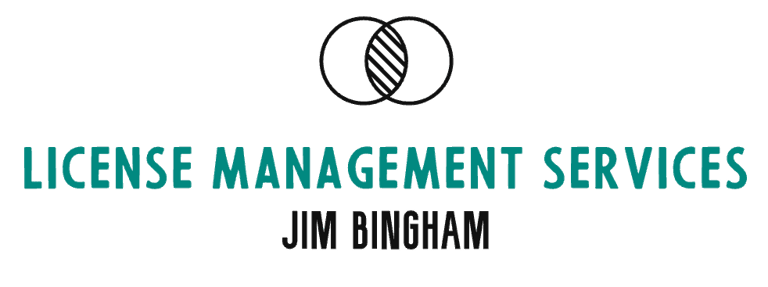Why Do You Need License Management Services?
Covers each aspect License Management Services assists in managing the licensing process.
Jim Bingham
5/25/20253 min read


Navigating the liquor licensing process without professional guidance can be overwhelming and increase the risk of errors. License counsel can be invaluable for addressing challenges and streamlining the process. Submitting a complete and accurate application is crucial to ensure a flawless and timely submission.
Securing an alcohol license in New York is essential for any business that hopes to sell or serve alcohol. Whether opening a restaurant, bar, liquor store, catering service, or other business, navigating the state’s licensing requirements can be daunting. Not only are you now operating legally, but you can do so without fear of being interrupted or issued penalties by authorities.
It has many steps — from learning about applicable state and local restrictions to filling out and submitting a detailed application, to being approved following inspections or hearings. Each step requires attention to detail and a clear understanding of New York’s regulatory framework. Mistakes or delays can cost valuable time and money, making professional guidance essential.
Obtaining a liquor license is critical for any hospitality business, from luxury hotels to vibrant restaurants and bars. It not only allows establishments to serve alcohol legally but also plays a significant role in defining their service offerings and enhancing the patron experience. Once obtained, a liquor license can open doors to new revenue streams and elevate the venue’s ambiance, making it an essential component of successful hospitality operations. We specialize in navigating the complex landscape of liquor licensing in New York State. Our deep understanding of state and local regulations and extensive experience in hospitality law make License Management Services your choice for approval.
Steps to Obtain a Liquor License in New York
Obtaining a liquor license in New York involves several critical steps, each requiring careful attention to detail. From researching regulations to submitting your application and managing inspections, knowing what to expect can save time and avoid unnecessary delays. Below, we break down each step to guide you through the process.
Research Local and State Regulations
Before starting your application, it’s essential to understand the regulatory framework for liquor licenses in New York. This includes state-level rules governed by the NYSLA and local requirements specific to your business location.
Determine eligibility–Ensure your business and location meet the NYSLA’s qualifications, including zoning laws and distance restrictions from schools or places of worship.
Review community board requirements–Local municipalities often involve community boards in the approval process. Be prepared to address community feedback, as objections can impact your application.
Understand license type-specific regulations–Different licenses have varying requirements. For example, on-premises licenses often require detailed floor plans and health permits.
Proper research at this stage helps identify potential roadblocks and ensures your application meets state and local requirements.
Prepare and Submit Your Application. Once you understand the requirements, the next step is to compile the necessary documents and submit your application. This detailed process demands accuracy and thoroughness.
Gather essential documents:
Business formation documents, such as LLC operating agreements or articles of incorporation.
Detailed floor plans of your premises.
Financial disclosures to demonstrate compliance with funding regulations.
Personal history forms for all stakeholders, including background checks.
Lease details for the location.
Pay applicable fees: Fees vary depending on the license type and location. Ensure all payments are made during submission.
Notify the local municipality: Many applications require public notice filings or direct notifications to the community board.
Manage Inspections and Hearings.
After submitting your application, you may be required to undergo inspections and participate in hearings to finalize your license approval.
Inspections: The NYSLA or local agencies will inspect your premises to ensure health and safety standards compliance.
Hearings: Some applications require presenting your case before community boards or the NYSLA. During these hearings, objections from neighbors or other stakeholders may be addressed.
Preparation is key for both inspections and hearings. You can depend on our team to ensure your business meets all requirements and is prepared to respond to questions, allowing you to navigate the licensing process more smoothly and avoid common setbacks.
Key Challenges and How to Overcome Them
Obtaining a liquor license in New York is challenging. From regulatory complexities to unexpected delays, businesses often encounter obstacles that can disrupt their plans. Understanding these challenges and how to address them proactively can make a significant difference in the licensing process.
Common Roadblocks in Licensing
Even the most prepared applicants can face issues during the liquor licensing process. Some common challenges include:
Zoning Conflicts: Certain areas restrict where alcohol can be sold or served, such as proximity to schools or places of worship.
Community Opposition: Residents or businesses may object to your application, particularly in densely populated neighborhoods.
Incomplete Applications: Missing documents or errors in your application can lead to costly delays or outright denials.
Lengthy Approval Times: New York State Liquor Authority (NYSLA) backlogs can extend processing times, especially during peak periods.
How to Overcome These Challenges:
Conduct thorough research on zoning and local regulations before submitting your application.
Engage with community boards early to address potential concerns.
Double-check all documentation to ensure accuracy and completeness.
Plan for potential delays by submitting your application before your intended start date.
Jim Bingham
Licensed Commercial Real Estate Agent
Liquor License Specialist
License Mangement Services
Expertise in liquor license approvals across New York, based in Rochester.
585-683-9647
© 2025. All rights reserved.
